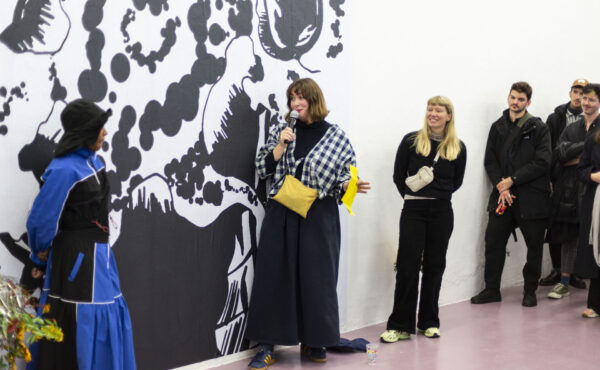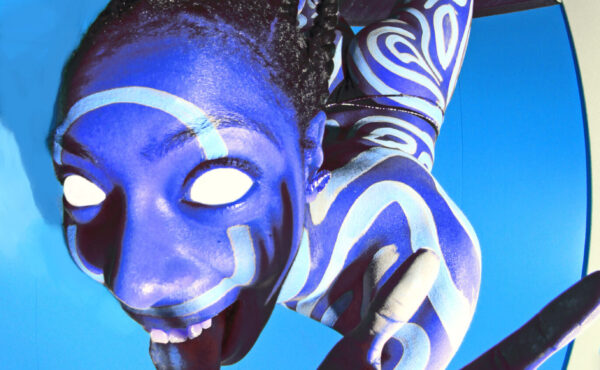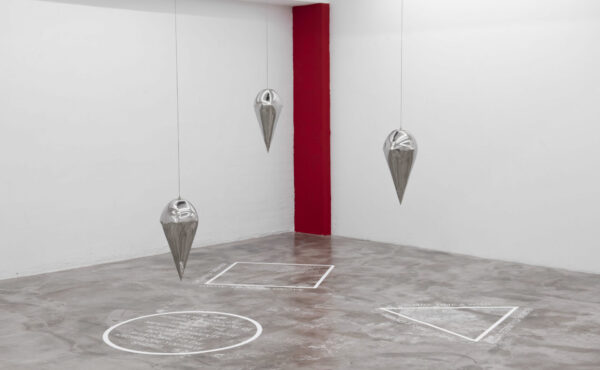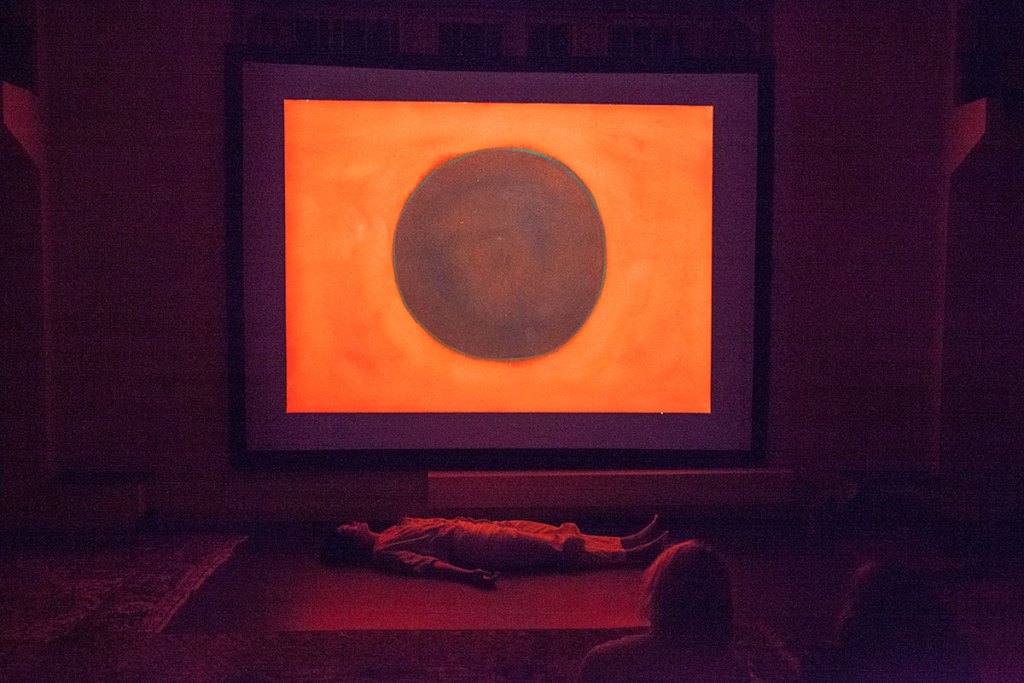
A Saturday afternoon at the Performance Days
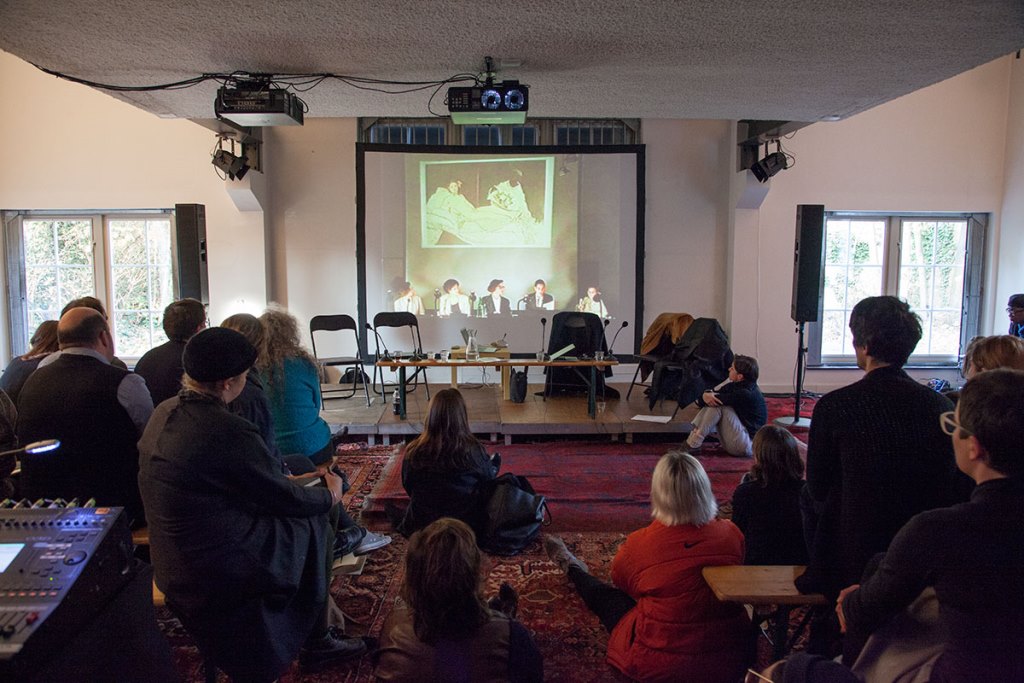
With performances by amongst others Snejanka Mihaylova, Sara van der Heide and Andrea Fraser, presentations by Babette Mangolte and Chus Martínez, and several special exhibitions and panels If I Can’t Dance’s Performance Days gave a unique insight in their impressive research into the history (and future) of performance art.
Hilarious video presenting four attractive women discussing Manet’s painting Olympia, begun the third day of Performance Days, a festival organized by Amsterdam-based initiative If I Can’t Dance, I Don’t Want To Be Part Of Your Revolution. During the recorded panel the women read papers that vary from serious, factual analysis to cynical and humoristic comments. The motives are drawn freely from variety of contemporary methodologies including feminism and psychoanalysis. The audience addressed directly and asked to participate – burst out laughing. The panelists are none other than V-Girls, a feminist performance group founded in 1986 in New York and known from performances taking form of academic panels involving satirical analysis of works of art and literature. Although it is more than 20 years since the recording, the public at Ruysdaelkade (main venue of the festival) reacts just as lively and vigorous. The Question of Manet’s ‘Olympia’: Posed and Skirted gave a good springboard to further discussion around The V-Conspiracy – Refunctioning Authorship or, After Appropriation and Institutional Critique.
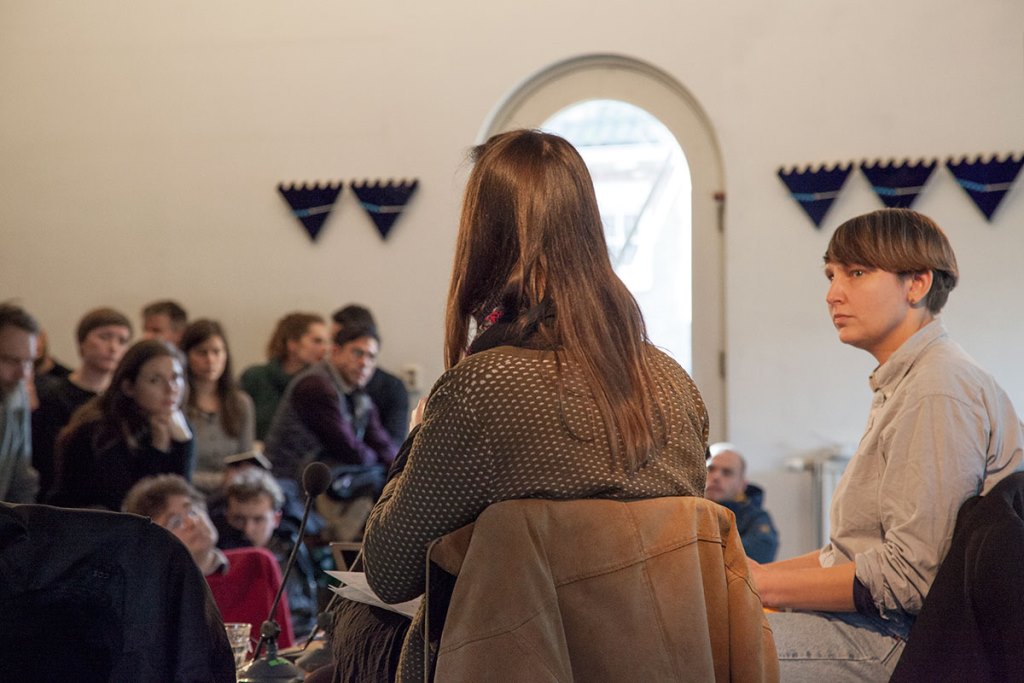
The panel, moderated by Tanja Baudoin and Vivian Ziherl, with artist Sidsel Meineche Hansen, curator Fatima Hellberg and art critic and historian Sven Lütticken – returned to artistic practices of the 1970s and 1980s, in particular, with a focus on feminist imperatives. Next to the V-Girls has been mentioned the figure of Louise Lawler and particularly her work Birdcalls (in which she transformed names of well-known contemporary male artists into birds’ songs) as a statement of authority and parody. Fatima Hellberg used similar ‘devices’ to talk about instruments to create a distance of the micro perspective of the body contra institution.
It applies also to the latest video Seroquel by Sidsel Meineche Hansen, recently exhibited at her show INSIDER at Cubitt in London. The CGI animation of female figure, made entirely out of the body-items bought in 3D shop, reflects very much on self-destruction and mutation – ‘mutation towards something that is unknown’, as Hellberg commented. ‘A body – and this is the only important thing about being a subject-body, a techno-living system – I’m the platform that makes possible the materialization of political imagination’*, wrote Beatriz Preciado in her book Testo Junkie. Vivan Ziherl asked then: ‘What is it to be self-determined?’. Appropriation becomes a tool for self-testing, visible as a form of labor and the body – as infrastructure. The transformation needs to be material and social at the same time.
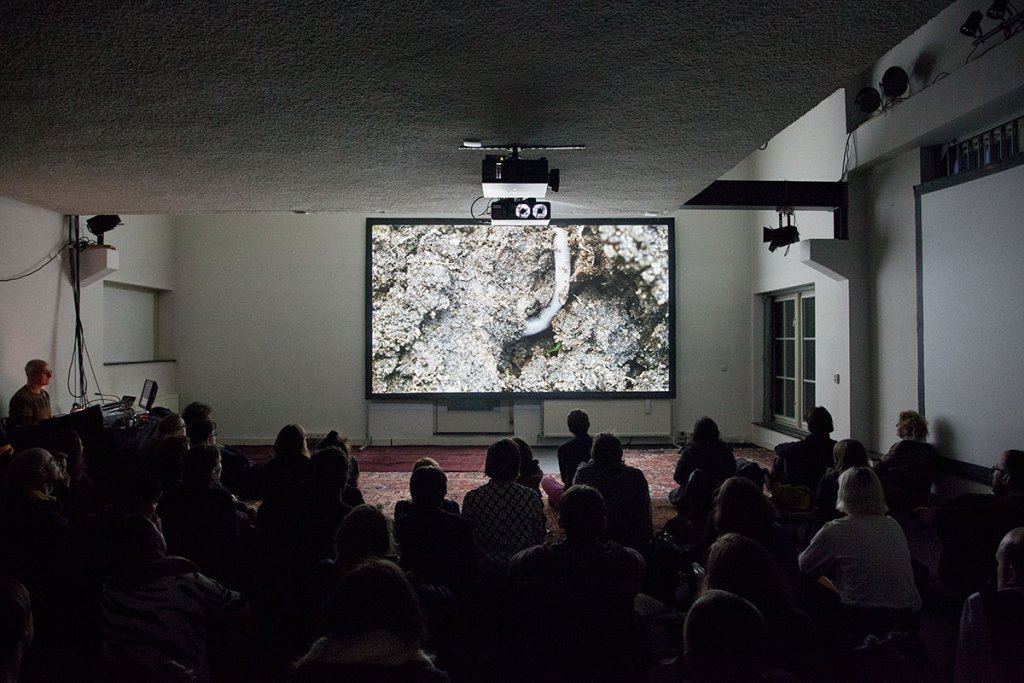
The second part of the afternoon session continued exactly when the sun began to set, at 4.33 PM. New commission Mother Earth Breathing by Sara van der Heide referred to the continuous process of nature, in terms of value and investment. The physicality of the work is determined by the law of sunrise and sunset and focused on what’s at the present moment rather than future progress. The screening started with sequences of macro images shot in a botanical garden. Continuous flow of high quality close-ups of flowers, plants and worms were interwoven with the views of different phases of the moon. After about forty minutes the projection was moved on the adjacent wall. Sara laid down on the floor, just below the animation of geometric figures that slowly morph to new colors, shapes and dimensions. Color and light are important components in the work, but the major role belongs to the time, also as a time of being together. Time gives a focus on changing condition and sometimes it is necessary to slow down in order to experience.
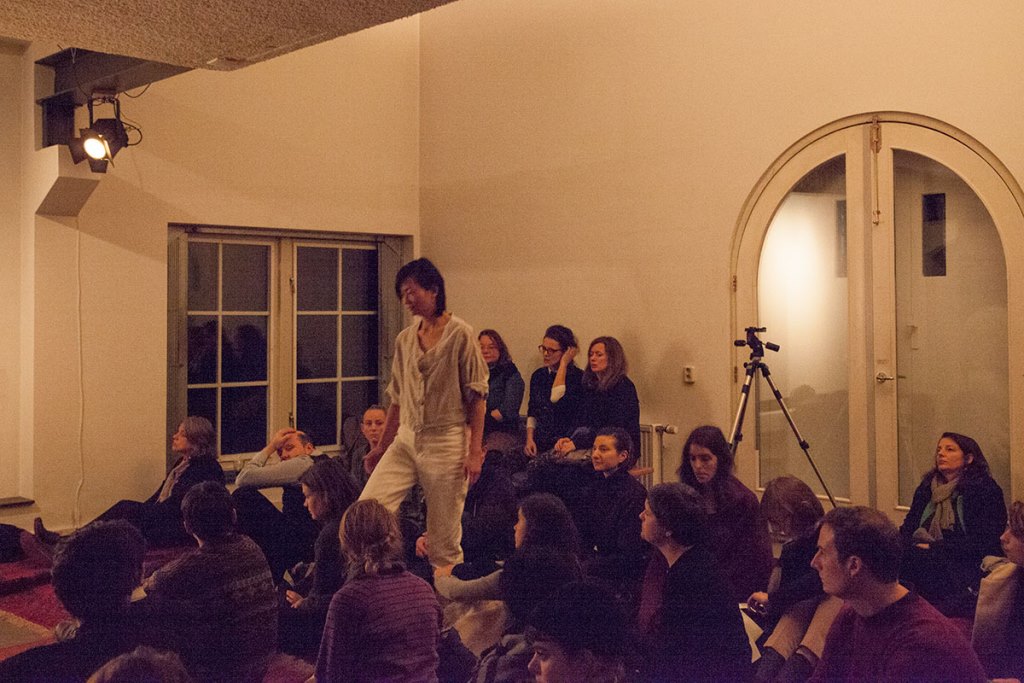

Maybe it was the cold weather, change of temperature form outside to inside or darkened room and slightly flickering light of the projection that left me in a sort of limbo. The state of my body and mind was no different than boredom and stupor and only long while after I left the room came to me the Japanese theater Noh, where appreciated audience supposed to sleep while watching and desired viewing state is placed between wakefulness and dream. I am not only sure whether it this case it was necessarily a good dream.
Nevertheless, the idea of Performance Days was noteworthy, not only against parallel events of Amsterdam Art Weekend but the ongoing discussion on evolution and topology of performance and performativity in contemporary art in general.
- Beatriz Preciado, Testo Junkie: Sex, Drugs, and Biopolitics in the Pharmacopornographic Era, The Feminist Press at CUNY, 2013
If I Can’t Dance, I Don’t Want To Be Part Of Your Revolution; Performance Days,
27 November – 3 December
Seen: Saturday 29th November, Afternoon
Images from Facebook/IICD
Weronika Trojanska
is an artist and art writer
